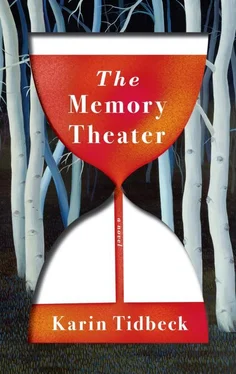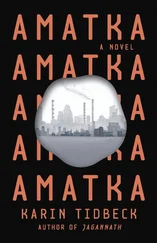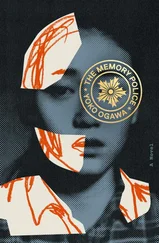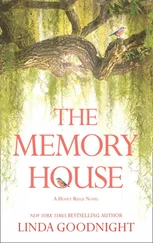“I’m not making it lightly,” Albin said.
“What about Dora?” Journeyman asked.
Dora looked at Albin, who gave her a stare. I have a plan, he had said. Dora had to trust him.
“I go where Albin goes,” she said.
“Albin?” Director blinked. “Ah. Your name.”
Nestor nodded. “Good name.”
“That wouldn’t be a problem, would it,” Journeyman said, and moved to stand beside Dora. He looked up at her with a hopeful gleam in his eyes. “Them coming with us.”
Nestor chuckled and shook his head. “It would certainly be a perk for some of us.”
Director twirled the shawl between her fingers. “It’s not a bad plan,” she mused.
“So we are in agreement?” Nestor asked.
Director and Journeyman nodded.
“I see no reason to wait,” Director said. “Nestor, will you do the honors?”
The troupe closed in around Dora and Albin. Journeyman embraced Dora and Albin from behind. Director slid her hand around Albin’s shoulders. Nestor took Albin’s face in his hands. Up close, Dora could see how the creases by Nestor’s eyes were slightly paler than the rest of his face. The inside rims of his eyes were turning outward with age, but the irises were a clear and shifting brown, like leaves at the bottom of a winter puddle. He smelled of old teeth and face paint.
“What is your name?” he asked Albin.
“Albin Jönsson,” Albin replied.
“Then say after me, ‘I, Albin Jönsson, swear to serve as Apprentice until a new Apprentice is found.’ ”
Albin repeated Nestor’s words. Nestor kissed his forehead. Then he took a step back.
“Welcome, my dears, to the Memory Theater,” Director said. “We are going to put on an excellent show.”
—
Albin slid into his role as Apprentice like hand into silken glove. He brought finesse and emotional presence to his characters. Director said he was a natural. They put on play after play, all fetched from Director’s playbook. Dora watched and applauded.
There were things Albin could not do yet. Sometimes, the plays the company put on were about people who weren’t human-shaped. There were stories about people with hive minds and spindly legs; stories about undulating beings that made Dora’s eyes hurt; stories about people made of sound. Albin bravely put on costumes and imitated the others’ movements and voices. Director said that he would eventually learn other forms, if he stayed.
In his spare time, Albin wrote. He wouldn’t show anyone what it was; he had asked for paper and pen, and said it was a diary. Nestor had patted him on the shoulder and said it was therapeutic. Not even Dora was allowed to know.
This meant she had plenty of time to think. She dreamed about the mountains often: the great silence, the vast spaces, the calm of massive stone. She thought about seeing Grandmother and Grandfather again, about hearing the saajvoe sing.
Journeyman kept close, but not too close; he was waiting for something. Dora thought she knew what it was, but she didn’t want to give it to him, and told him as much. Not ever? Journeyman had asked. Not ever, Dora had replied.
In the mountains, no one would look at her and hope for things. Dora found herself slowing down. Noise and movement became more stressful. She slept longer and longer. Albin said he worried about her. Nestor said that perhaps she was coming into her true nature, whatever that was. What is the word for when you think of where you came from and become sad? she asked Journeyman once. Homesick, he had answered. You’re homesick .
—
One day, Albin came over to her as they were preparing for the sixteenth play, The Great Tragedy of Ossa-Fara . He was dressed in the dun robes of the Penitent Brother, face painted in a white mask.
“I need you to do something,” he said.
“Yes,” Dora said without hesitation.
“I said I had a plan,” Albin continued. “It’s time to make that plan happen.”
He reached into the folds of his robe and drew out a bundle of papers. “Dora,” he said, “I need you to put this in Director’s book while we’re putting on the play. They mustn’t notice.”
“Why?” Dora asked.
“Just trust me, please. Will you do this for me?”
“I will,” Dora replied.
When all the actors were onstage and Director was holding a passionate speech as the great queen Ossa-Fara, stricken by madness and about to obliterate her own lands, Dora snuck behind the curtain and found Director’s playbook where it lay on her dressing table. She lifted the cover, and it was empty. Dora stuck Albin’s bundle of papers in there and went back to her couch in front of the stage.
The great queen Ossa-Fara was assassinated by the Penitent Brother, and the Crone sang her lilting song, and it was over.
“A middling performance,” Nestor muttered as he took off the Crone’s wig.
“You can’t hit all the notes every single time,” Journeyman said. “I thought it was great.”
“Everyone!” Director shouted from behind the stage.
“What?” Nestor shouted back.
Director lifted the curtain and came out, brandishing the playbook. “There’s a new play,” she said.
“So soon?” Nestor said. “Must be urgent.”
“It might be,” Director said. “Just look at the title. I think we need to do it right away.”
“What is it?” Albin asked.
“It seems to have your old enemy in it,” Director said, and grinned.
33
The Fall of the Gardens
PROLOGUE
CHORUS:
Welcome, one and all, into the Gardens,
Where time does not exist, nor night or day,
Where lords and ladies in eternal twilight
Torture children, feast, and dance, and play.
A lady, once cast out, returns to join them
Unwittingly about to seal her fate.
Here, we tell the tale of how Augusta
Brought the Gardens to a tragic end.
SCENE I
A lawn, with small chairs and tables to the side. Two Revelers are playing croquet with a lump of meat. The Lady Mnemosyne watches from a divan. Augusta Prima enters from stage left.
AUGUSTA:
Here I am at last, back from my travels;
The road was long and bloody, full of murder,
For I am a villain with a cause.
Let me see if they have missed my presence.
Augusta takes another step, revealing herself.
AUGUSTA:
I have returned, beloved gentlefolk!
Once cast out, I hope now to be welcomed back.
MNEMOSYNE:
Augusta! I know not of what you speak.
Please take a club and play croquet with us.
REVELER 1:
Yes, Augusta, play a game with us!
REVELER 2:
There is wine and all the birds are singing.
REVELER 1:
We killed a servant and devour’d him.
His kidney makes a perfect croquet ball.
The Revelers take Augusta’s hands. They dance across the stage. Augusta laughs and dances along.
REVELERS:
Sing for youth and beauty, sing for evermore!
Sing for feast and revelry, sing for nature’s gifts!
AUGUSTA:
I think I was elsewhere but have forgotten.
How beautiful this never-ending feast.
Augusta continues to sing and dance, but from her hands, a miasma begins to ooze like black smoke. She walks across the stage, caressing trees, flowers, and the Revelers. The trees droop, the flowers wilt, and the Revelers’ clothes begin to fray where she has touched them. Augusta dances past Mnemosyne and lightly touches her hand.
Читать дальше










![Карин Тидбек - Аматка [ЛП]](/books/438406/karin-tidbek-amatka-lp-thumb.webp)

